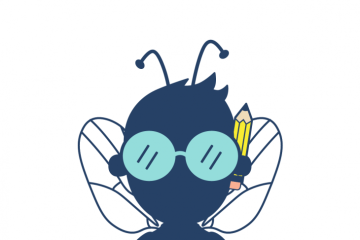Apparently, generative AI has made the traditional academic essay obsolete—and so, for our own good and the good of our students, it is time we scrap them. Over at The Atlantic, English teacher Daniel Herman calls the essay “no longer useful.” And some professors lament that AI marks “the end of writing assignments“ as we know them. Bollocks.
The general thrust of this argument is old and dusty. In 1899, facing the Industrial Revolution, progressive theorist John Dewey advanced a version of it: “that this revolution should not affect education in some other than a formal and superficial fashion is inconceivable.” In both Herman’s and Dewey’s minds, since technology has changed, education must change.
While plausible on its face, this argument is ultimately flawed. Traditions such as family dinners are all the more important with the advent of modern technology. Handwashing and exercise remain the best prophylactics against disease, even with modern medical therapies. The traditional academic essay, too, still has much to offer students, much that goes far beyond the simple act of writing it.
In all my years teaching, never did I consider an academic essay an end in itself. Whereas Herman suggests that students only write an essay in school so they can write research papers in college, I openly confessed to my students that they’d never need to write a five-paragraph essay in their professional lives. Rather, an essay was a means to different ends.
An essay teaches control of language. It teaches how to organize thoughts and structure them such that a reader can easily follow them. It teaches how to state an argument clearly upfront, hook a reader’s interest, and conclude in a concise, powerful way. It teaches students how to weave together data and compelling anecdotes such that a piece of writing is both accurate and interesting. It’s a place to practice rhetorical strategies like repetition or analogy. Any professional writing, from a workplace email to a newspaper op-ed to a careful blog post, benefits from these skills.
But having rejected the essay, Herman suggests that we focus on what makes teaching “meaningful and potentially life-changing: the communal experience of being in a classroom.” His vision for the English classroom resembles a glorified book club. Or maybe bull session. There are two flaws with this ideal, one practical and the other theoretical.
Practically, sitting around discussing whether students like a book requires little attention to detail or real analysis. Herman’s focus on extemporaneous writing like journal entries and short reflections deprives students of the benefits of formal writing. Revising, extended consideration of one idea, clarifying thoughts after feedback—these are the forces that hone student thinking. Shooting the breeze in a circle discussion or jotting down an off-the-cuff reaction simply doesn’t push thinking in the same way.
That’s not to say that classroom discussion and extemporaneous writing have no place. Socratic discussions and oral examinations have a storied history, and brief, initial reactions help a student process their thoughts before coalescing them into a more structured format. I ended every unit by reorganizing my students’ desks into a circle and discussing the themes of our recently finished novel in an open-ended discussion format. Students learn through these classroom activities, but the demands of an essay teach distinct lessons, too.
Herman provides an example of one student who connected the exploitations of whaling in Moby-Dick to the shortcomings of modern capitalism. There’s a vast amount of writing skill and factual knowledge a student must master to write that essay well. One of my own students analyzed Romeo and Juliet through the lens of different Greek words for love—agape, storge, philia, and more. No mere discussion can foster that depth of analysis.
The theoretical flaw is in Herman’s assumptions that the communal experience alone is meaningful or life-changing. Quite the contrary: Teaching students formal academic knowledge such as the mechanics of writing—emphasizing evidence and formal structures over passing impressions and reactions—is what teachers uniquely can offer. Students can sit around and chat with their friends. Can they teach each other how to use an appositive phrase or fronted adverbials to trim turgid prose?
We still revere the power of constraint in the realm of music. It’s not a student left to plunk out random notes that achieves musical freedom. It’s not a child who listens to and discusses music all day who masters the craft. Rather, it’s the one who spends hours practicing scales or memorizing songs who is liberated in the long run to play Chopin’s “Nocturnes” or whatever else fits their fancy.
Children will become engaged, thoughtful writers only once they’ve mastered language. That is meaningful and life changing.
ChatGPT can do many things, but it can’t teach us how to think. Until AI masters that skill, traditional assignments—from practicing math facts to writing an essay—will remain essential elements of any productive classroom.







